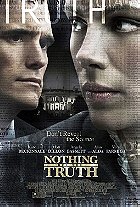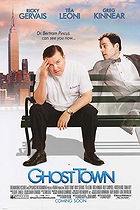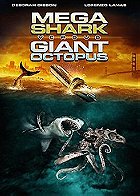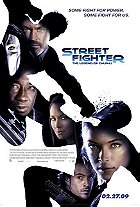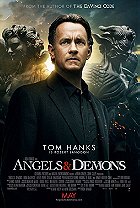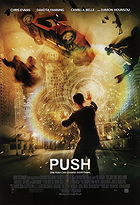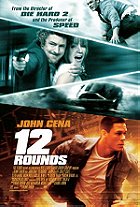Deborah Kampmeier's much-hyped Hounddog premiered at the 2007 Sundance Film Festival to a disastrous reception. Following its derailment at the festival, the film was subsequently recut and revised before being given a brief, unsuccessful theatrical release almost two years afterwards. But make no mistake...even the amended version of this humid drama is thoroughly awful. Although writer-director Kampmeier tried to get this project off the ground for a decade, Hounddog - unofficially known as The Dakota Fanning Rape Movie - feels tailor-made to be a vehicle for young Dakota Fanning who clearly desires to transition from kid roles to more dramatic material via this controversial drama. Unfortunately, this is just a heavy-handed, overwrought feature that isn't nearly as powerful or as provocative as it clearly strives to be. Hollow, unbelievably clichéd, unappealing, and unable to convey a worthwhile message, Hounddog is a handsomely-produced but unintentionally risible film.
Taking place in Alabama (although it was filmed in North Carolina) during the late 1950s, the story follows a precious young free spirit named Lewellen (Fanning). A pre-teen on the verge of womanhood, Lewellen is unaware of her burgeoning sexuality as she attracts the attention of lecherous boys while attempting to sort out her domestic troubles. The troubled 12-year-old girl only finds solace from her abusive life through blues music - namely Elvis Presley, whose songs she keenly sings and dances along to.
If there's one thing Hounddog does correctly, it's the recreation of the American South during the 1950s. The striking visuals are evocative of rural living, and the soundtrack (alive with the sounds of locusts and grasshoppers, in addition to a cocktail of classic music) are able to pull a viewer in. Unfortunately, though, Kampmeier has no idea what to do with an audience once they've become immersed in her world. The key flaw is that the story doesn't have anything valuable to say. Moreover, Lewellen never acts like a prepubescent girl - she's a writer's construct as opposed to a living, breathing human being.
Essentially a coming-of-age tale, Hounddog is an extremely episodic drama that bounces all over Lewellen's world in increasingly irritating and unintentionally funny ways. The loss of innocence is supposedly the main vein of thematic exploration for this feature, but Kampmeier simply isn't focused or talented enough to effectively pull it off as she struggles to cover the large canvas of Lewellen's family woes. Clichés plague the screenplay as well. With plenty of painfully "symbolic" snakes, a jovial African American who can offer homespun wisdom at the drop of a hat, and predatory boys who rape young girls, it's doubtful there's a Southern cliché that the writer-director misses!
The first two thirds of Hounddog are incredibly unfocused and grow increasingly boring. Kampmeier continues to throw in pointless distractions rather than focusing on developing a semblance of a narrative. Such distractions include the arrival of a snobby rich girl, as well as the tragedy that befalls Lewellen's father when (in an unintentionally comic moment) lightning strikes his tractor and he's turned into a childlike invalid. Eventually those who know what's coming will find themselves in the decidedly peculiar position of impatiently awaiting the rape of Lewellen, hoping the scene will get things moving. The rape scene arrives after roughly an hour, and is shown with sufficient restraint to deflect a lot of the criticism it received. There's nothing gratuitous or exploitative about this particular scene; it's presented as tastefully as possible while still conveying the horror of the act. (Kampmeier does cross the line, however, with a silly Jesus reference: Lewellen's palm is cut by a nail).
After the rape scene, Kampmeier's movie stumbles from one unlikely story development to the next, and is packed with further distractions (such as the return of a character who wants custody of Lewellen). There's no compelling portrait of Lewellen as she struggles to deal with the trauma. The film never deeply explores the character...she's ashamed and her spirit is broken - that's about all we get. An unnecessary plethora of subplots are added instead - there's some mystical mumbo-jumbo involving snakes, and an all-knowing Negro who soothes Lewellen's spirit with his words of healing and blues music. How does that solve the problem? At the end of the day, Hounddog is just utterly uninvolving and asinine.
More than anything else, Hounddog is a film that allows Dakota Fanning the rare opportunity to convey a tremendous range of emotions in an Oscar-baiting performance. Fanning is the best thing about this otherwise cold fish of a motion picture. The only other actor worth mentioning is David Morse as Lewellen's father. Morse, already a cringingly limited actor, just does his best Forrest Gump impression after his character is struck by lightning. He ludicrously overplays his character's mental reduction, to the point that one will likely be reminded of Robert Downey Jr.'s speech in Tropic Thunder regarding the perils facing an actor who goes "full retard."
Hounddog is merely a string of vignettes - there's no coherent or compelling story, and it loses power as a result. The controversial rape scene is the only moment in Hounddog that's genuinely effective because it is the only time that writer-director Deborah Kampmeier had a solid idea of what she wanted to say. In spite of a few scenes of utter greatness, this motion picture as a whole is an unmitigated mess. If there was genuine heart and passion behind this film, Hounddog could've become the genuinely moving and powerful drama that it wanted to be rather than the maudlin, silly mess it ended up becoming.
4.7/10
 Login
Login
 Home
Home 183 Lists
183 Lists 1665 Reviews
1665 Reviews Collections
Collections
 0 comments,
0 comments, 